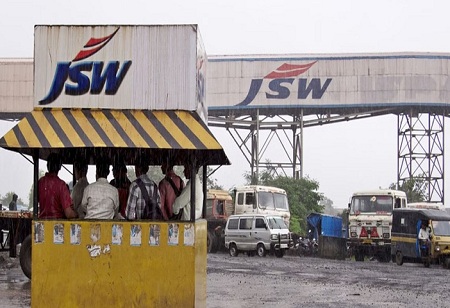The December quarter saw modest improvement for JSW Steel, India's top steel maker, following a challenging first half of FY23. The corporation is attempting to enhance exports in the short term in response to the recent elimination of export duties and the improvement in worldwide demand that followed the opening up of the Chinese economy. The predicted slowdown in 2023, though, could limit the upside.
The company's Ebitda for the December quarter increased by 160% sequentially to 4,547 crore, a significant decrease from the similar quarter last year. Reduced costs for raw materials aided.
However, a number of cost-cutting investments that it ordered have also begun to pay off. Revenues were down 6% QoQ to 39,134 crore, and there was a net profit of $474 crore as opposed to a deficit of $915 crore. It produced 6.14 million tonnes highest ever and 10% higher sequentially. Higher utilization in Dolvi plant and restarting of JSW Ispat Special Products helped. It increased capacity at Bhushan Power and Steel by 0.75 mtpa to 3.5 mtpa, taking capacity to 28 mtpa. Higher production led to higher inventories of 7 MT.
Seshagiri Rao, joint MD of JSW Steel, stated, "In Q4, we will aim to reduce this inventory and push more in the overseas market as international prices have perked up and 15% penalty on export is not there." Exports by the company decreased from 23% of revenues in the prior year's December quarter to 7% this year. Compared to the 6.06 MT in the December quarter, the company has forecast a 6.34 MT for the March quarter. Sales volume guidance is 7 MT as opposed to 5.5 MT. He continued, "Rich product mix, cost-cutting initiatives, and better prices should help in this quarter."
Chinese steel costs increased from $530 per tonne in November 2022 to $640 per tonne today. Will the price hold? Rao predicted a downturn and the impossibility of investment-related growth in China when he claimed that prices would hold steady but were unlikely to reach their prior peak.
